第47章
Greek has all these advantages: it has not the roughness of Latin, in which so many words end in um, ur, us.It has all the pomp of Spanish', and all the sweetness of Italian.It has above all the living languages of the world the expression of music, by long and short syllables, and by the number and variety of its accents.Thus all disfigured as it is to-day in Greece, it can still be regarded as the most beautiful language in the universe.
The most beautiful language cannot be the most widely distributed, when the people which speaks it is oppressed, not numerous, without commerce with other nations, and when these other nations have cultivated their own languages.Thus Greek should be less diffused than Arabic, and even Turkish.
Of all European languages French should be the most general, because it is the most suited to conversation: it has taken its character from that of the people which speaks it.
The French have been, for nearly a hundred and fifty years, the people which has best known society, which the first discarded all embarrassment, and the first among whom women were free and even sovereign, when elsewhere they were only slaves.The always uniform syntax of this language, which admits no inversions, is a further facility barely possessed by other tongues;it is more current coin than others, even though it lacks weight.The prodigious quantity of agreeably frivolous books which this nation has produced is a further reason for the favour which its language has obtained among all nations.
Profound books will not give vogue to a language: they will be translated;people will learn Newton's philosophy; but they will not learn English in order to understand it.
What makes French still more common is the perfection to which the drama has been carried in this tongue.It is to " Cinna," " Phedre," the "Misanthrope '' that it owes its vogue, and not to the conquests of Louis XIV.
It is not so copious and so flexible as Italian, or so majestic as Spanish, or so energetic as English; and yet it has had more success than these three languages from the sole fact that it is more suited to intercourse, and that there are more agreeable books in it than elsewhere.It has succeeded like the cooks of France, because it has more flattered general taste.
The same spirit which has led the nations to imitate the French in their furniture, in the arrangement of rooms, in gardens, in dancing, in all that gives charm, has led them also to speak their language.The great art of good French writers is precisely that of the women of this nation, who dress better than the other women of Europe, and who, without being more beautiful, appear to be so by the art with which they adorn themselves, by the noble and simple charm they give themselves so naturally.
It is by dint of good breeding that this language has managed to make the traces of its former barbarism disappear.Everything would bear witness to this barbarism to whosoever should look closely.One would see that the number vingt comes from viginti , and that formerly this g and this t were pronounced with a roughness characteristic of all the northern nations; of the month of Augustus has been made the month of aout.Not so long ago a German prince thinking that in France one never pronounced the term Auguste otherwise, called King Auguste of Poland King Aout.All the letters which have been suppressed in pronunciation, but retained in writing, are our former barbarous clothes.
It was when manners were softened that the language also was softened:
before Francois I summoned women to his court, it was as clownish as we were.It would have been as good to speak old Celtic as the French of the time of Charles VIII.and Louis XII.: German was not more harsh.
It has taken centuries to remove this rust.The imperfections which remain would still be intolerable, were it not for the continual care one takes to avoid them, as a skilful horseman avoids stones in the road.Good writers are careful to combat the faulty expressions which popular ignorance first brings into vogue, and which, adopted by bad authors, then pass into the gazettes and the pamphlets.Roastbeef signifies in English roasted ox , and our waiters talk to us nowadays of a " roastbeef of mutton." Ridingcoat means a coat for going on horseback ; of it people have made redingote , and the populace thinks it an ancient word of the language.It has been necessary to adopt this expression with the people because it signifies an article of common use.
In matters of arts and crafts and necessary things, the common people subjugated the court, if one dare say so; just as in matters of religion those who most despise the common run of people are obliged to speak and to appear to think like them.
To call things by the names which the common people has imposed on them is not to speak badly; but one recognizes a people naturally more ingenious than another by the proper names which it gives to each thing.
It is only through lack of imagination that a people adapts the same expression to a hundred different ideas.It is a ridiculous sterility not to have known how to express otherwise an arm of the sea, a scale arm, an arm of a chair ; there is poverty of thought in saying equally the head of a nail , the head of an army.
Ignorance has introduced another custom into all modern languages.Athousand terms no longer signify what they should signify.Idiot meant solitary , to-day it means foolish ; epiphany signified appearance , to-day it is the festival of three kings; baptize is to dip in water, we say baptize with the name of John or James.